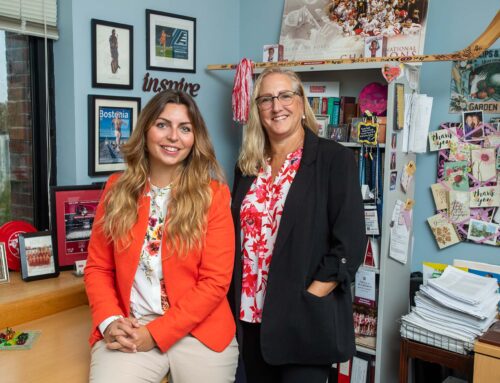The Recorder
April 2017
Walking out of the Garden Cinema, Fiona LaRosa-Waters thought to herself: How can I bring this back to my work?
The community relations specialist for Walden Behavioral Care, a center in Amherst that treats eating disorders, came back to her office and let her colleagues know what she had learned at the movie theater Wednesday morning — the importance of educating the community on how to treat trauma to prevent an onslaught of life-harming illnesses that can follow.
Clinical & Support Options (CSO) hosted a screening of the 2016 documentary “Resilience” at the Greenfield cinema, inviting about 160 local and regional health leaders to educate themselves and then head back to their communities with resources for further enrichment.
CSO provides behavioral health and substance abuse care through six licensed outpatient clinics.
The documentary focuses on trauma and the potential effects it can have on a child’s life down the road, such as a higher risk of becoming addicted to drugs or alcohol.
“How can we bring that to Walden?” LaRosa-Waters said. “Either as an assessment tool for our patients? Or can we do our own research?”
Community leaders were present, too, like the Opioid Task Force’s Peggy Vezina and The RECOVER Project’s Michael Lewis.
“We’re not going to change this culture that’s so harmful unless we change the mind-set of the people who provide the services, who are frontline,” Lewis said. “And the policies around what is taught and what isn’t.”
The director of the Greenfield-based recovery center said it was important that everyone from teachers to lawyers and doctors learn how to better address trauma. He recommends that these people have trauma-informed teaching mandatory to their education.
Lewis mentioned that he, the Opioid Task Force and others in the community have sat down with state Senate President Stan Rosenberg, D-Amherst, to outline a proposal of initiatives to help fight the opioid epidemic — including educating people how to interact with others who have been affected.
The sentiment seemed to reverberate around the community present Wednesday morning. Many felt that the documentary and discussion helped them to realize what should be brought back to their peers.
“It takes everything I know and understand and it puts it into something more conceptual,” said Leann Loomis, the director of pupil personnel services of Mohawk Trail and Hawlemont Regional schools.
Loomis said she is working with the Opioid Task Force to help educate students on trauma.
For the organizer of the day’s events, it was a chance to put a lot of different specialists together and help break some existing barriers when it comes to trauma.
“Our goal here today was to talk about how do we build resilience among children and in adults as well,” said Deborah Ekstrom, the vice president of CSO.
“The biggest challenge is just for people to understand where resilience is and where it comes from,” Ekstrom said. “Some people think you’re just born with it. That’s really not the case.”





